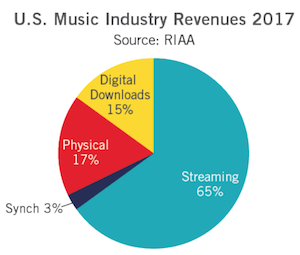You are using an out of date browser. It may not display this or other websites correctly.
You should upgrade or use an alternative browser.
You should upgrade or use an alternative browser.
Carbon footprint of streaming
- Thread starter al2002
- Start date
mondie
pfm Member
That was fascinating, and rather unexpected. As I get older, like many, I want less and less stuff in my life. But as an avid music collector this is difficult to reconcile against a simpler life. Friends and family often push streaming at me but it has zero appeal despite the obvious benefits in convenience and clutter.
pickwickpapers
pfm Member
If music streaming is that bad, where does it leave the shift from broadcast TV to Netflix, 20x the datarate?
yes, strange (to me) that the research, or at least that linked presentation, is emphasising music 'consumption', rather than Internet useage in general, and in particular visual media streaming.
either way, hard to escape the vague (much in keeping with the data in the article) impression that the web is doing rather more harm than good, in all sorts of ways. Heating up the atmosphere, heating up attitudes ...
we needz a rebooot.
The article just seems to be comparing the 'production of plastics and the generation of electricity (for storing and transmitting digital audio files). I wonder if everything has been calculated. Buying a CD in a shop or online requires its transport, display or courier and packaging etc.. Vinyl has cardboard sleeves etc. Playing a CD requires energy.
I would guess there's a trade off. If you buy a CD and play it once it would prove environmentally costly compared to just playing a streamed album once. If playing a CD many times perhaps the costs per play reduce whereas the cost of streaming per play remains the same.
Of course one thing about energy is that it can come from renewable sources. Hence streaming could ultimately be the best environmental solution as there are no plastics.
I would guess there's a trade off. If you buy a CD and play it once it would prove environmentally costly compared to just playing a streamed album once. If playing a CD many times perhaps the costs per play reduce whereas the cost of streaming per play remains the same.
Of course one thing about energy is that it can come from renewable sources. Hence streaming could ultimately be the best environmental solution as there are no plastics.
tuga
Legal Alien
I've made reference to this problem a few times here at PFM.
Climate change: Is your Netflix habit bad for the environment?
The entire information technology (IT) sector - from powering internet servers to charging smartphones - is already estimated to have the same carbon footprint as the aviation industry's fuel emissions.
https://www.bbc.co.uk/news/technology-45798523
.
Before streaming, a single audio and video broadcasting channel would serve a massively large population.
With the advent of streaming each individual is accessing on-demand content, and this is a more widespread practice thanks to the mobile phone (everyone has one).


TV boxes also provide content à la carte, and audio an video streamers are becoming ever more popular.
Is there any doubt that this method of listening to music uses a lot more energy?
Climate change: Is your Netflix habit bad for the environment?
The entire information technology (IT) sector - from powering internet servers to charging smartphones - is already estimated to have the same carbon footprint as the aviation industry's fuel emissions.
https://www.bbc.co.uk/news/technology-45798523
.
Before streaming, a single audio and video broadcasting channel would serve a massively large population.
With the advent of streaming each individual is accessing on-demand content, and this is a more widespread practice thanks to the mobile phone (everyone has one).


TV boxes also provide content à la carte, and audio an video streamers are becoming ever more popular.
Is there any doubt that this method of listening to music uses a lot more energy?
tuga
Legal Alien
CD players only seemed to last me a few years. That represents a lot of carbon
What about smartphones?
wylton
Naim and Mana member
It's interesting though, isn't it, that whenever we are faced with this kind of problem, for example with cars, we can say oh, we'll just drive electric cars and then the problem will go away. With streaming though, it's not so easy, because we'd have to go back to physical media.
tuga
Legal Alien
No. You just download once. Buy instead of rentingIt's interesting though, isn't it, that whenever we are faced with this kind of problem, for example with cars, we can say oh, we'll just drive electric cars and then the problem will go away. With streaming though, it's not so easy, because we'd have to go back to physical media.
wylton
Naim and Mana member
No. You just download once. Buy instead of renting
Yes, that's true and that's exactly what I do.
tuga
Legal Alien
I thought the article was interesting however I'd definitely want to see the justification for those carbon numbers from streaming as that bit of the article had no useful detail.
Imagine how many Netflix processors and hard-disks are working every evening taking into account that each user will be accessing a file.
This is an image from the CERN data centre that can give an idea of the amount of hardware being stored in one of these buildings:

Some data centres like this one in Portugal have more than 50,000 servers.
https://www.bloomberg.com/news/feat...ter-s-moat-and-mesh-like-facade-keeps-it-cool
Microsoft will be building a new data centre on the ocean floor to reduce power consumption because these data centres should be kept at around 20º C:


